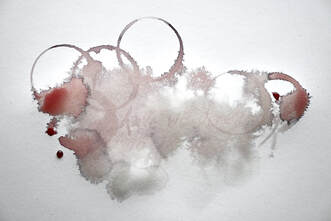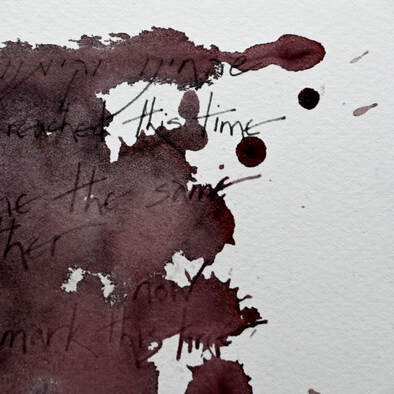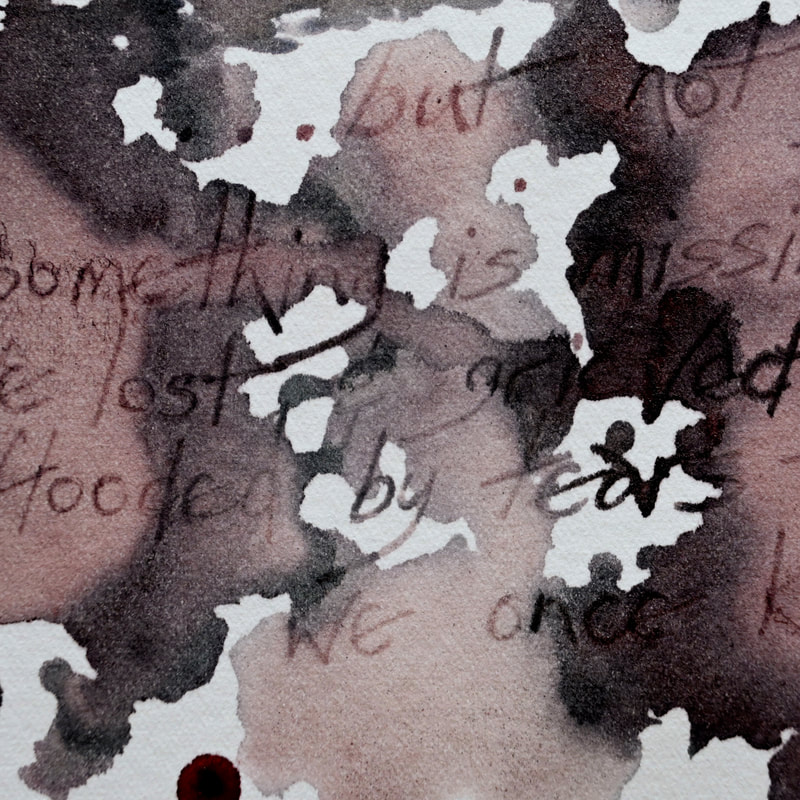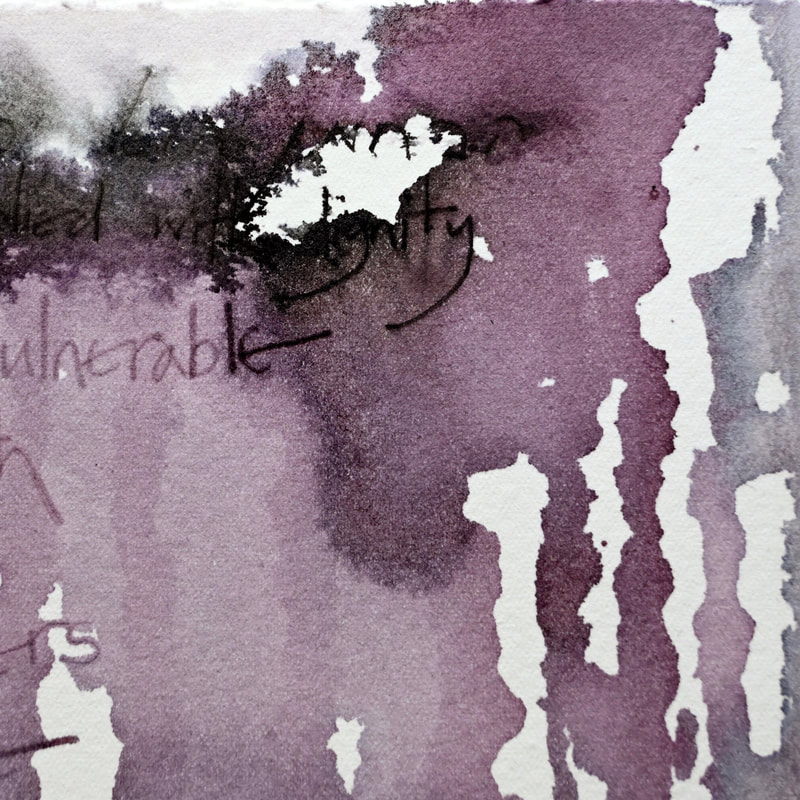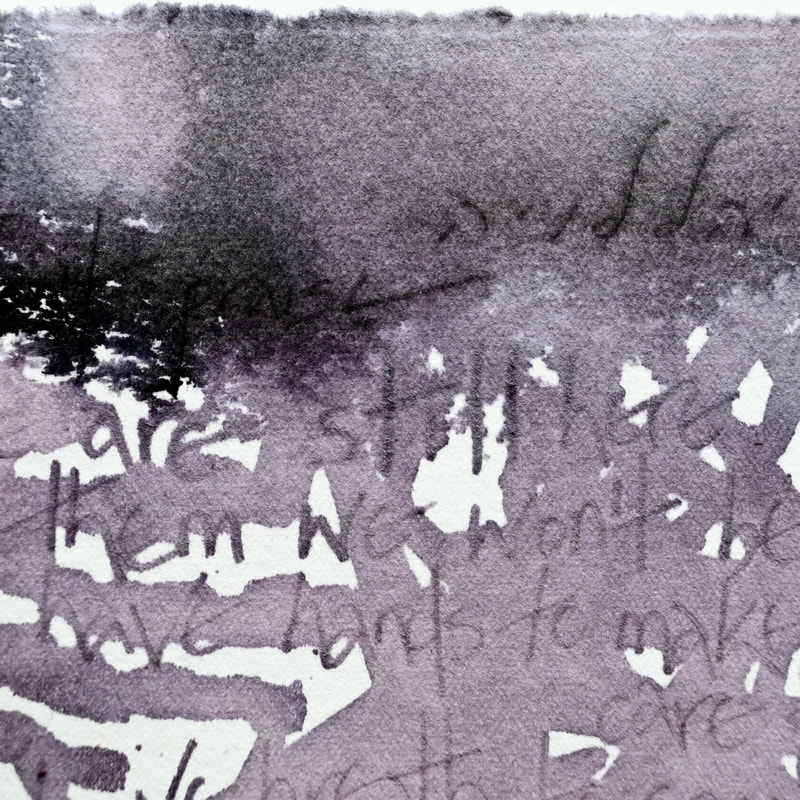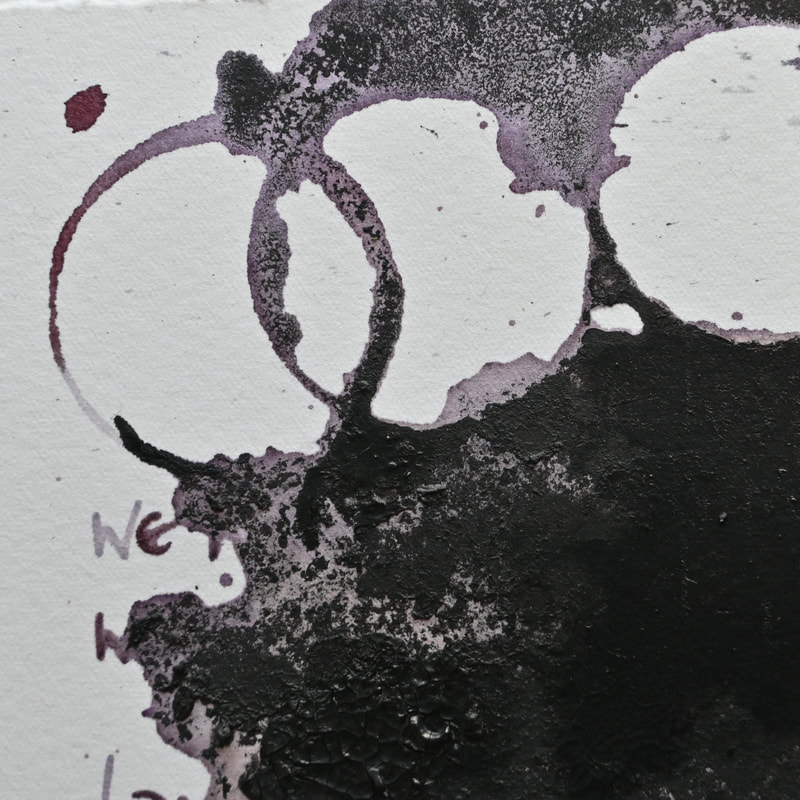Drop by Drop
|
Drop by Drop is a series of animated drawings taking inspiration from the Haggadah’s stage directions to spill wine when mentioning the plagues. This project explores the grief and loss we have all experienced during the Covid-19 global pandemic. The four cups of wine punctuate the seder’s journey, marking the ceremonial beginning that sanctifies this ritual meal, kiddush; to pouring out wine for Elijah, the mythical prophet who will herald an ultimate redemption. These animations follow this progression. In each short animation, wine is used as ink to draw with, taking the starting point the relevant passages in the Haggadah. The wine soaked writing distorts and plays with the text as it falls into illegibility and reveals its shadow self.As the drawings dried, the wine shifted and changed leaving these beautiful traces and residues.
Supported by Asylum Arts and JArts Boston as part of Reimagine Exodus |
1st Cup
|
“you have given us life, kept us, and we have reached this time”
My days have become the same My nights blur together But tonight I am here now I will raise a glass, mark this time I will try to remember & be happy The first cup of wine is the traditional kiddush, the blessing that acknowledges the moment in time. It is said for the Sabbath and on festivals. On Seder night the kiddush concludes with the Shehechyahn blessing. I was struck by the phrase “we have reached this time.” In the longer kiddush text it links to marking time with happiness, moadim l’simcha. During this pandemic, the lockdowns and reduced socialising has left me with a sense of boredom, and confusion. Each day was a tedious repeat of the one before. There are no big experiences that are markers in time with which to form memories. So, without external stimuli, awareness of time is created by ritual, marking the moment with physical act, the kiddush. Not just saying the words but also lifting the cup, drinking the wine, marking the moment in time, and with shaky hands we unintentionally mark the objects around us. Our haggadot carry the wine blots of seders past, of other shaky hands who held a cup of wine and became aware. In the Talmud, M. Brachot 40, grapes are suggested as one of possible fruits of the Tree of Knowledge in the Garden of Eden. Wine unlocks knowledge and brings awareness to our world. |
2nd cup
|
“And we will be thankful and sing a new song”
But not yet Right now something is missing We have lost & grieved, We are flooded by tears for the world we once knew & loved. The 2nd cup of wine is said after the long section that is pretty much the bulk of the formal part of the seder. During which the story of the slavery in Egypt is told, wine is spilt when mentioning the plagues, and the number of plagues is debated and magnified. Much more wine than 10 drops needs to be spilt. But the text for the 2nd cup acknowledges that whilst we are doing this seder with matza and marror, something is missing. Due to the destruction of the temples and exile we do not have the Pesach sacrifice, and so our redemption is not yet complete. This focus on what has been lost reminds me of the story of Noah, who after leaving the ark, plants a vineyard and gets drunk into a stupor. One midrashic interpretation is that he wanted to numb the pain of seeing the world that has been devastated by the flood, and not yet rebuilt. This pandemic has radically changed our world. The global death toll is heart-breaking, we have lost loved ones and we were not able to mourn and grieve them together. We have lost our way of living and gathering. So before we find new ways to come together, let us acknowledge that so much, and so many, are missing. |
3rd cup
|
“Grant that our needs be supplied with dignity”
We are vulnerable We are flesh & blood, bones & breath We need food, water, rest, oxygen Blood donors, medical teams, carers Kindness love dignity life The third cup of wine is said at the end of birkat hamazon, the Grace After Meals, which describes God as supplying our various needs, and the needs of all living things. It also contains the phrase that our needs should be supplied with dignity, and in an earlier paragraph, that we should not be fully reliant on flesh and blood. Implying that to be reliant on others makes us vulnerable to mistreatment and indignities to our basic humanity. This pandemic has revealed our fragility, and how much we are interconnected and reliant on others to look after us. Preferably with respect and dignity. In M. Shabbat 129 the Talmud advises to drink red wine after a blood letting session, red to replace red. Whilst blood letting is not how we treat our bodies today, I wanted to use the visual link between wine and blood to evoke the vulnerability of our physical selves. |
4th cup
|
“The dead can’t praise”
We are still here others are not And for them we won’t be silent & still We have hands to make & do, transform & touch, care & give We have breath to speak, sigh, scream & shout sing, thank, praise & hope The 4th cup of wine is said at the end of the Hallel, the section that is full of poetic praises and thanks to God. In this text the physicality of our bodies is acknowledged, and it is precisely because we are physical and alive we have potential to create, transform, imagine and have agency. In the Talmud in M. Shabbat 88, the angels argue with God about giving the Torah to humanity. God points out that the angels do not have bodies, do not physically experience the world, and therefore cannot participate in ritual acts. For the mystics, it is only through physical acts, in this world, that can affect change and transformation in the upper worlds. In other words, heaven needs us to drink up. |
5th cup
|
“acceptance”
We have endured, we are done, finished We have sung, remembered, grieved, & guarded We cleaned, we ate, we drank perhaps too much perhaps not enough have we done enough to be safe for now for tonight We drink 4 cups of wine on Seder night, but we pour out a 5th, set aside for Elijah. The prophet who heralds the end of days, resolving disputes and bringing clarity and certainty. The Talmud in M. Pesachim 110 a demon warns of the dangers of drinking an even number of cups of wine, and the king of the demons, Ashmodai could attack those who act in pairs. So, when drinking it is advisable to pour out another one, just in case one stops at 2, 4, 6, etc… There is a discussion about the 4 cups of wine at Seder night, and it is suggested that they aren’t considered fully dangerous because Seder night is considered leil shimorim, the night of guarding. We are doing something that is potentially threatening, but we hope that we have the necessary protection to be safe. This pandemic has been a time of anxiety, of changing guidelines and infractions into our daily lives. Lockdowns, hand-washing, mask-wearing, social distancing - have we done enough to be safe? Is there any way to be certain? For now… are we safe? |
